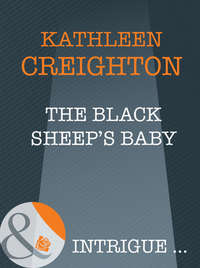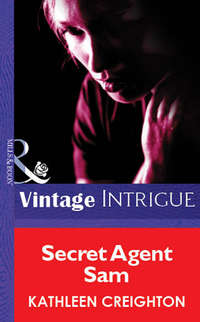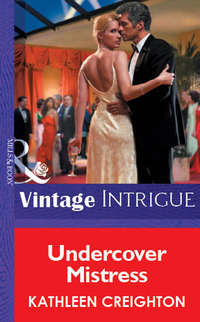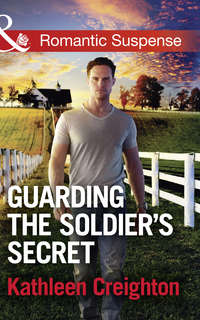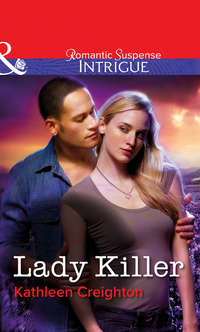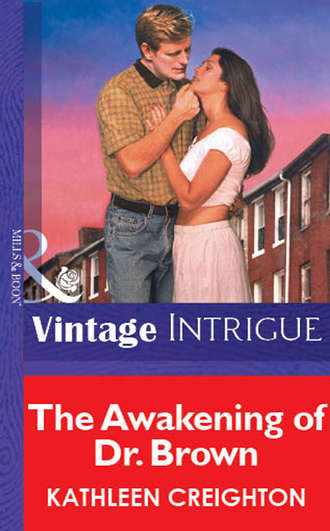
Полная версия
The Awakening Of Dr. Brown
Ethan nodded in automatic sympathy as he drew aside the exam room curtain; it was a story he’d heard many times before, one that unfortunately he had no answer for.
Just outside the curtain the woman stopped, turned abruptly and asked, “So, how much I owe you?”
It caught Ethan by surprise; he was already moving on, his mind leaping ahead to other things—the afternoon’s schedule, Ruthie’s lovelife, the evening’s four-to-midnight EMS ride-along. He turned back with a frown, poking absently at his lab coat pocket. “There’s no charge, ma’am, this is a free clinic.”
But the woman—Ethan glanced now at the chart, searching for her name…Louise, that was it, Louise Parker—drew herself up, somehow seeming inches taller. And in the proud lifting of her chin, reminded Ethan suddenly and for the first time of her son.
“Uh-uh—I got me a job, I been offa welfare for a year, now. I ain’t no freeloader. Michael and me, we pay our own way.”
Ethan glanced imploringly at Mrs. Schmidt, who had heard the exchange and was watching with great interest from her cubbyhole behind the reception counter. The woman drew a folded bill from the pocket of her faded jeans and thrust it at him. “Here—it’s all I got right now. If it’s not enough I’ll give you the rest next time I come. Let’s go, Michael.”
Speechless, Ethan watched Louise Parker and her son until the clinic’s front door had closed with a click behind them. Then he unfolded the bill. “My God,” he whispered, showing it to Mrs. Schmidt. “Twenty dollars—I’ll bet that’s a lot of money to her.”
“Probably.” As she went back to her books Mrs. Schmidt added in a musing tone, “That is one lucky little boy, you know that? With a mother like that, he might actually have a chance.”
Across the street from what had once been the South Church Street Fire Station, a thin black woman hurried along the sweltering sidewalk. So preoccupied was she with the scolding she was administering to the small boy dressed in baggy clothes and a backward baseball cap shuffling along beside her that she failed to notice a similarly dressed youth—this one Caucasian and of indeterminable gender—until they had all but collided.
“Michael!” The woman’s sharp whisper accompanied a light swat to the sagging seat of the boy’s trousers. “What you doin’, boy? Mind your manners! Say ‘excuse me.”’
“’Scuse me,” the boy dutifully mumbled, just as the “youth” was muttering, in a voice several tones deeper than her own distinctive contralto, “No, no, that’s okay—my fault. I wasn’t looking where I was going.”
The woman had done a double take and was now regarding the youth with an appraising stare, taking in the pale hue of her skin, the mirrored sunglasses, the New York Yankees logo on her baseball cap. “Hey,” she demanded on a rising note of incredulity, “you lost?”
Safe in her disguise, Phoenix reached out to give the bill of the little boy’s baseball cap a tug—why, she didn’t know, she normally had little use for children. “Nah,” she said with a wry smile, “not exactly. I was just looking for something…a place I used to know.”
“Yeah, well…” Looking extremely doubtful, the woman was edging away from her now, hands protectively on the child’s shoulders. “If I was you, I’d be askin’ Father Frank.”
“Who?”
“You know—the priest? Over there at St Jude’s.” She pointed, then hurried off in the opposite direction, calling back over her shoulder, “He can probably help you.” But she sounded, Joanna thought, as if in her opinion any white person dumb enough to be walking around alone in that neighborhood was most likely beyond help. She wondered if the woman knew St. Jude was the patron saint of lost causes.
Half a block down the street in the direction the woman had indicated squatted the ugly redbrick pile trimmed in white that housed the rectory of St. Jude’s Catholic Church. Next to it on the corner, the church itself—for which the street had been named nearly a century before—was only a slightly more graceful edifice, brightened somewhat by a Victorian abundance of stone trim and stained glass windows. On a tiny patch of grass tucked between the two, a stocky man dressed in black bermuda shorts and a white T-shirt had paused in his task of manhandling an old-fashioned push lawn mower in order to watch the exchange. Now he came toward Joanna, wiping sweat from his face with the sleeve of his T-shirt.
“Can I help you?”
Joanna hesitated. Normally she had no more use for priests than she did for children. But the man’s eyes were kind. “Maybe,” she said grudgingly, and jerked her head toward the street. “Didn’t there used to be a firehouse around here somewhere?”
The priest smiled. “That’s right—that’s it over there, across the street. Used to be the old Church Street station. They moved it a few years ago—three blocks over, on Franklin. Got too small, the street too crowded, I guess. Anyway, they’ve got a big new station over there—police, fire and EMS, all in one building. Go back down a block, then over three—you can’t miss it.” He paused, liquid dark eyes narrowing with concern. “Is everything okay? Anything I can do for you? You need to use the phone—”
Joanna shook her head. Then, for reasons she couldn’t begin to understand, heard herself explain, “I used to live around here—years ago. I was just wondering…” She paused and drew a careful breath, released it in a soft laugh. “I guess things have changed quite a bit.”
“Yes, I guess they have.” The priest’s eyes rested on her now with gentle appraisal. She felt herself tense under their scrutiny, and was instantly annoyed. Priest or not, the man was probably younger than she was; what right had he to make her feel like a truant?
But instead of turning her back and walking away, for some reason she hesitated still, her eyes going once more to the narrow redbrick building across the street. A man was just emerging from the arched front entrance, pausing the way people do when they come from air-conditioning into the heat, as if he’d just missed bumping into something solid. A young man, he appeared to be, with a tall, healthy, well-built body dressed in blue jeans and a short-sleeved shirt with a collar, open at the neck. Sort of preppy looking, in spite of a neatly trimmed beard. Definitely not from this neighborhood. Even from this distance—just something about the way he moved, maybe, the way he carried himself—she could tell he was good-looking, even handsome in a wholesome, blond, shredded wheat sort of way. Nice.
Memories crowded in, filling her chest with a treacherous sadness. Nice voices…kind faces, smudged with soot. Your momma’s gone, honey, you come with me now…it’s gonna be okay. It’s gonna be okay…
“It’s a free clinic now,” the priest was saying, and his eyes were friendly and young once again. “Staffed by volunteers, mostly. My sister works there part-time—she’s a nurse over at Community Med. Hey, if you happen to drop in over there, tell Ruthie Mendoza her brother Frankie said hello.”
But the rock icon known as Phoenix barely heard him. She was already moving away down the cracked and dirty sidewalk, walking quickly, one hand going to her mirrored sunglasses as if to reassure herself the disguise was still in place.
Ethan could hear a stereo thumping before he’d even reached the door of the EMS station. Classic light rock—so he’d guessed right about Kenny Baumgartner being his ride-along partner. Kenny was thirty-one, considered ancient for a paramedic, so his tastes in music tended to run pretty close to Ethan’s, which made him a welcome relief from some of the younger EMT’s and their mind-numbing, not to mention ear-deadening preferences. Ethan wondered if it was a sign of advancing middle-age, now that he was approaching thirty himself, to be finding fault with the younger generation’s music.
“Ah…good song,” he said as he walked into the EMT’s lounge to a driving beat, the familiar and haunting chorus of “Pretty Mary.”
“Classic,” Kenny agreed without looking up. The paramedic was sprawled in a chrome and plastic kitchen chair poring over his latest sailing magazine, bobbing his head and whistling tunelessly in time to the beat. “One of the all-time top ten—right up there with the Boss, man. Might even beat out “Born To Run.”
That brought a snort from the lanky and obscenely young EMT who was lounging with one elbow propped against the countertop, waiting for something in the microwave. Any comment the paramedic had intended as a follow-up was preempted by the oven’s prolonged beep, and he uttered instead a satisfied, “Ah!” as he popped open the door. The smells of pepperoni and processed cheese filled the off-duty room.
“Heard she’s got a new CD coming out.” Kenny tossed aside the magazine and tilted his chair back at an alarming angle. “Supposed to be starting a big worldwide tour, is what I heard.”
Concentrating on separating mozzarella from cardboard, the young paramedic glanced up long enough to say, “Who?” just as Ethan was exclaiming, “No kidding?” So then both Ethan and Kenny had to pause to give the kid a look of incredulity.
“Phoenix—who the hell are we talking about?” Kenny said, shaking his head as if in profound disgust at such ignorance, as Ethan set his medical bag on the floor and sank into a chair, wiping sweat with his shirt sleeve.
“Oh, yeah, Phoenix…right.” The EMT—Leon, according to the tag on his uniform pocket—shrugged, licked his fingers, then added, “Isn’t she supposed to be in town?”
Again, both Kenny and Ethan stared at him. And again it was Kenny who asked, “Who? Phoenix? Here?”
Leon placed his pizza on the table and shrugged.
“Where’d you hear that?” Kenny demanded, clearly in disbelief.
“Hey,” said Leon, looking offended, “I read Rolling Stone.” He glanced from Kenny to Ethan and back again. “It’s true. Supposed to be getting ready for some big new gig.”
It was Kenny’s turn to snort in derision. “Nobody kicks off a tour from this town, man. This town is where tours come to die.”
Leon could only shrug, being totally committed to the lava-hot mozzarella he’d just bitten into. Presently he managed to mumble through the mouthful, “Just tellin’ you what they said, man. It was like, she used to be from here or something.”
Once again both Ethan and Kenny were struck momentarily dumb by that news, but the stunned silence lasted only a second or two before it was filled by the raucous blast of the alarm. It was a sound that never failed to send a bolt of electricity through Ethan, kick his heart rate into high and lift up the hairs on his forearms, and in that instant he lost all interest in the likely whereabouts of the rock-and-roll legend called Phoenix.
Kenny righted his chair with a thump. “We’ll take it,” he said to the younger paramedic, who was hunched over his pizza, desperately trying to sever the umbilical cord of cheese that bound him to it. Ethan was already on his feet and reaching for his medical bag. Kenny signaled to him with a jerk of his head. “Time to rock ’n’ roll.” He grinned at his own cleverness, then let the grin slide toward wryness as he added, “Starting in early tonight. Must be the heat.”
Kenny’s words proved prophetic. During the course of Ethan’s four-to-midnight ride-along, he and Kenny had already handled two multi-injury MVAs, a jogger with chest pains, the combatants in a bar brawl, and a portly fellow who’d fallen off a ladder while attempting to install an air conditioner in a second-floor bedroom window. So, when the Klaxon sounded at eleven-forty-five, Leon and his partner, Scott, generously offered to take it.
“’Bout time for ol’ Doc, there, to be headin’ for the barn, anyways,” was the way Leon put it, a blatant reference to Ethan’s age. Which had been the source of a running, and in Ethan’s opinion not very funny, joke among the younger EMTs for quite a while now.
Kenny, who had been listening to the dispatcher, shook his head. His face was grim as he gave Ethan the head-jerk signal to roll. “Balcony collapse over in The Gardens,” he said, referring to one of the worst of the many slum neighborhoods in that part of the city, one well-known to police, fire and rescue squads who’d nicknamed it The Gardens because it was anything but. “Sounds like one for you, Doc. Do you mind?”
Ethan was already a step ahead of him going out the door, adrenaline pumping. “That’s only a few blocks from here,” he pointed out as he signaled to the driver of an anonymous dark sedan parked in the No Parking zone in front of the station. He climbed into the EMS wagon and pulled his safety belt across his shoulder as the wagon rolled down the drive. Watching in the side view mirror, he saw the sedan take up its customary position a couple of car-lengths behind as they sped down the dark street, lights whirling and siren wailing.
High in her converted loft, Phoenix heard sirens and woke from a restless sleep. It was not the first time; the sirens had been busy tonight. As all the times before, she woke with her heart racing and her body slick with sweat, and it was a minute or two before the chill of terror faded and her breathing grew quiet again.
But you’re safe here…safe.
From somewhere a melody came to her and she sang it softly to herself in her mind. Yes, and she remembered now, remembered where she’d heard it most recently. It was the melody Doveman had played that afternoon, segueing from “Pretty Mary,” except that he’d played it in a minor key and with a bluesy rhythm.
The words came to her, and she sang them to herself, too, finding in them a familiar comfort.
Hush little baby, don’t say a word,
Papa’s gonna buy you a mockin’bird…
Often, in times of dire emergency, Ethan’s mind entered a zone of quiet, a place from which it could operate calmly and efficiently, protected from the distractions, the fear, the sights, sounds and smells of crisis that surrounded him. He didn’t know when it had begun; it just seemed that it had always been so, and he was grateful for the gift.
It stood him well now, as the EMS wagon screeched to a halt at a curbside crowded with people, in a shadowy darkness noisy with panic, anger, shock and uncertainty.
“Paramedics—move aside, please, let us through. Step back please….”
From somewhere out beyond his zone of quiet he heard Kenny’s voice, calm but loud, and weighty with authority. He heard sobbing, a woman’s voice, many voices speaking rapidly in tones of panic, shock and fear, speaking all at once, explaining, imploring…praying.
“It was so hot, you know? The air conditioner don’t work. The babies was in bed…she was just gonna sit for a while, out where it’s cool…”
“There was this noise…and then the whole thing came down!”
“Just tore right out the wall!”
“Wasn’t nothin’ I could do…wasn’t nothin’ anybody could do…”
“Oh, Lord Jesus…Oh, God…somebody gotta help her!”
“Somebody…”
With that faraway part of his mind, Ethan felt himself climbing over rubble, kneeling on chunks of bricks and wrought iron that cut his knees even through his jeans. He could feel adrenaline pumping through his body, feel the sweat running in rivers down his face, feel his hands moving swiftly and surely, exploring crushed and mangled flesh. He heard his own voice shouting orders, firing instructions, heard himself calling for the equipment, the fluids, the tubes and lines and wraps that could and so often did salvage lives that seemed beyond saving. With the distant part of his mind he felt and heard those things…even while the quiet, protected part knew it was hopeless.
“Hey, Doc, there was nothing you could do.” Kenny’s gravelly voice came from somewhere behind him, heavy with regret, gentle with acceptance. “The femoral artery was cut clean through. She bled out in a matter of minutes.”
“Yeah,” Ethan muttered, “I know.” Emerging from his quiet place, he now felt shaken, exposed and vulnerable. He tore off a glove and drew the hand across his eyes, and then as his gaze shifted to the face of the body sprawled like a broken doll in the rubble before him, swore with vehement surprise. Dark eyes stared up at him, almond-shaped eyes with a familiar exotic tilt.
“What?” Kenny asked. “You know her?”
Ethan nodded. His stomach clenched, and then his teeth. “She was in the clinic. Just this afternoon. She’s got a kid.”
At that moment, just as if he’d been waiting for his cue, a small boy tore free from the arms that had held him safely away from the circle of tragedy and pushed his way to Ethan’s side.
“Hey, Doc—you gonna fix my momma. She gonna be okay, right?”
Jostled off-balance, Ethan looked up into Michael Parker’s amber eyes. Oh, how he wished he could lie. He desperately wanted to; his mind searched for the comforting words. But instead, he only shook his head.
For one endless moment the boy stared back at him with frightened, angry eyes…bravely lifted chin. Then he pushed at Ethan, struck him hard with both doubled-up fists before he turned. Blindly. Then waiting hands reached for him and pulled him away.
Somewhere, someone was sobbing.
Only when he was sure the boy was safely away did Ethan lift his hand and gently close Louise Parker’s unseeing eyes.
Chapter 2
The day after the tragedy in The Gardens, Ethan was in the rectory of St. Jude’s Catholic Church monitoring the progress of a hastily convened meeting of the Citizens’ Alliance for Community Action from his hiding place in the rectory kitchen. Such skulking and hiding seemed cowardly to him but was actually a compromise of sorts. Father Frank had tried his best to dissuade him from coming at all.
“Bad idea,” the priest had insisted that afternoon on the phone. “The news media’s got their teeth in this in a big way. When word gets out—and it will—that the ride-along doctor on the scene was the president’s son…”
“Maybe that’s not such a bad thing,” Ethan said heavily. He’d thought about it a lot, during the course of a difficult day and worse night. “Something needs to be done. If we use my name, my dad’s influence—”
“We’ll be sitting in the middle of a three-ring circus. Ethan, my friend—my naive friend—I know you mean well, but do you have any idea what will happen down here—what will happen to these people once the various government agencies and the media get involved in this?”
Ethan’s jaw tightened. “Well, I expect my work at the clinic would be history, but at least something would be done about improving conditions in The Gardens. Those tenements—”
The priest’s snort interrupted him. “The Gardens will become a political football, everybody fighting over what to do and how to pay for it and who gets the credit, and the media will be egging them on, and while the struggle goes back and forth, what do these people who actually live down here do? After an appearance or two on national network television, they go on as before—only with less privacy. No, my friend…” a sigh gusted over the line “…and perhaps it is shortsighted and God forgive me, but I don’t much care about what new legislation gets passed, or what new ordinances, or what new development projects get proposed for sometime in the far-distant future. I care about these people, and what they need is some changes to be made now. Before somebody else dies.”
Before somebody else dies.
Safely out of view of those attending the meeting in the next room, Ethan leaned his forehead against the wall and closed his eyes. In his mind, as in a darkened movie theater, he saw again the body in the rubble, the blood, the blind dead eyes. And another pair of eyes, very much alive. Angry amber eyes. Proud, frightened eyes. He felt again the frustrated blow from a pair of small, clenched fists. He heard poignant echoes of Mrs. Schmidt’s voice: With a mother like that, he has a chance. What will become of Michael Parker, he wondered, now that his mother is dead?
Ethan knew what it was like to be a small boy left suddenly without a mother. Those memories came to him, not as images on a movie screen, but as a cold, sick feeling in his stomach, a yawning emptiness in his heart. Almost a quarter of a century later, oh, how well he remembered it—the fear, the desolation, the terrible sense of abandonment. Back then, part of him had wanted to lash out in anger; part had tried to retreat into the remembered security of babyhood. Every part of him had felt utterly bereft.
But he’d had his sister, Lauren. He didn’t know what he’d have done without Lolly, even though most of the time she’d treated him the way older sisters generally treat younger brothers. Still, she’d been there for him when it counted.
And then…there’d been the miracle. Dixie had come. Dixie, with her gifts of music and laughter and breezy Texas ways. Starved for a mother’s love, six-year-old Ethan had fallen for her immediately, long before his father had made her officially his stepmother. Long before the entire country had fallen in love with her casual, down-home charm and embraced her as its most unconventional First Lady. As his father the president was fond of saying, both in public and in private, God Bless Dixie.
Ethan had been lucky. He’d had Lolly to keep him on his toes and Dixie to love and care for him. Who would Michael Parker have?
Beside him the crack in the kitchen door cautiously widened, and he straightened hurriedly as Ruthie Mendoza slipped through and sidled past him. From the parlor, which also served the church as an informal meeting room, he could hear a rising level of noise and activity. He wondered what he’d missed while his mind had been wandering in his own distant past.
“What’s going on?” he asked Ruthie in a whisper.
“Wrapping up.” Ruthie didn’t bother to lower her voice. Nor did she look at him, but went on making unnecessary adjustments to the platters of oatmeal-chocolate-chip cookies that were spread across the kitchen table. From the way she’d been pushing them on him all evening, Ethan suspected she’d made them herself. “I’m just going to take these in…”
She swept toward him with a plate of cookies in each hand and a spot of color in each cheek. All Ethan could do was pull the door open for her and shrink back behind it, well out of the line of sight of anyone in the parlor. As Ruthie sailed out the door, her brother, wearing a short-sleeved black shirt and his clerical collar, for once, sidestepped around her and into the kitchen. Ethan all but pounced on him.
“What happened? What did they decide? Are they going to the mayor? What about—”
“No city, state or federal officials—not yet,” Father Frank said with the contained satisfaction of someone who’s had things go exactly his way. He picked up a cookie and bit into it, glancing down at his rounded shirtfront as he did so; apparently Ruthie had been nagging him again about putting on weight. He shrugged and picked up another cookie. “First thing we have to do is find out who owns that building—or block of buildings. Then we decide where to go from there. Lawsuits, like government agencies, take too long. What we’re hoping is that the threat of bad publicity will be enough to squeeze these slumlords into bringing their buildings up to standard.”
“You want me—”
The priest shook his head. “Mrs. Schmidt’s volunteered to go down to city hall tomorrow morning. She’s got a friend who works in the…I forget what department, the one where they issue permits, fire and safety inspections, things like that. Anyway, she’ll—” He broke off with a muttered, “Oops” as someone bumped the door from the outside. He lunged to block unauthorized entry while Ethan once again flattened himself against the wall.
Through the partly open door he could hear the unmistakeably carrying voice of a television news reporter: “Oh—Father Mendoza—Father, I wonder if you could take just a moment to tell us—” The door closed, cutting off the rest.
After a moment, swearing softly and feeling utterly powerless, Ethan adjusted a Chicago Cubs baseball cap to hide his blond hair and let himself out of the rectory through the side door, where a Secret Service agent waited unobtrusively for him in the shadows.


